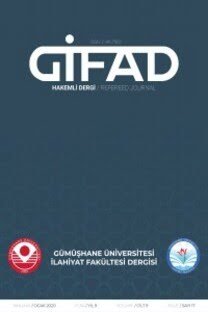John Hick’e Göre Tecrübenin Epistemolojik Değeri
Objektif bilginin imkânı, bize böyle bir bilgiyi sağlayan yetimizin hangisi olduğu, bilgi edinim sürecinde tecrübenin yerinin ve rolünün ne olduğu sorusuyla ilgili tartışmalar Antik Yunan felsefesine kadar gerilere gitmektedir. Rasyonalistler duyusal algıların aldatıcı olduğunu, objektif bilgiye duyusal verilere açıklık kazandıran düşünceyle ulaşıldığını iddia etmektedirler. Empiristler ise objektif bilginin tecrübeyle elde edildiğini, düşüncenin fonksiyonunun duyumlarla gelen verileri birleştirmek ve ayırmaktan ibaret olduğunu savunmaktadır. Rasyonalistlere göre akıl ve düşünceyle Tanrı’nın varlığının, ruhun ölümsüzlüğünün kesin bir şekilde temellendirilmesi, yani metafizik mümkün görülerken empiristler ise bu konudaki kuşkularını dile getirmişlerdir. 19. yüzyılın sonralarına doğru Mantıkçı Pozitivistlerin anlamlılık ve rasyonelliği olgusal olana indirgemeleri sonucu, metafiziksel önermelerin irrasyonel olduğunu dile getirilmeye başlanmıştır. Yani “Tanrı vardır ya da Tanrı insanları sever” şeklindeki önermelerin doğrulanma imkânı olmadığından anlamsız sayılmıştır. Mantıkçı pozitivistlerin bu iddialarını eleştiren Hick doğrulama ilkesinin teistik önermelere uygulanma imkanını ele almış ve Tanrı kavramı başta olmak üzere metafiziksel kavramların olgusal bir boyuta sahip olup olmadıklarını ortaya koymaya çalışmıştır. Tanrı’ya olan inancın rasyonel olduğunu savunan Hick, dinî tecrübeyi, Tanrı’nın huzurunda olma deneyimini, bunun haklı çıkarımı olarak görmektedir. Bu da dinî tecrübenin epistemolojik değeri sorununu gündeme getirmektedir.
Anahtar Kelimeler:
Din Felsefesi, John Hick, İnanç, Olarak Tecrübe Etme, Vahiy
The Epistemological Value of Experience According to John Hick
Discussions about the possibility of objective knowledge, what is our ability to provide such knowledge, what is the place and role of experience in the process of acquiring knowledge go back to Ancient Greek philosophy. Rationalists claim that sensory perceptions are deceptive, and that objective information is reached through thought that clarifies sensory data. Empiricists, on the other hand, argue that objective knowledge is acquired through experience and that the function of thought consists of separating and combining data from sensations. According to rationalists, a definitive grounding of the existence of God and the immortality of the soul through reason and thought, that is, metaphysics, was considered possible, while empiricists expressed their doubts on this subject. Towards the end of the 19th century, as a result of the Logical Positivists' reduction of meaningfulness and rationality to the factual, it started to be expressed that metaphysical propositions were irrational. In other words, propositions such as "God exists or God loves people" were deemed meaningless because there was no possibility of verification. Hick, who criticized these claims of logical positivists, discussed the possibility of applying the verification principle to theistic propositions and tried to reveal whether metaphysical concepts, especially the concept of God, have a factual dimension. Hick, who argues that belief in God is rational, sees religious experience, the experience of being in God's presence, as its justification. This raises the question of the epistemological value of religious experience.
Keywords:
Philosophy of Religion, John Hick, Belief, Experiencing-as, Revelation,
___
- Aslan, Adnan. Dinler ve Hakikat-J.Hick ve S.H.Nasr'ın Felsefesinde Dini Çoğulculuk. İstanbul: İsam Yayınları, 2006.
- Craig, William Lane. “Kelam Kozmolojik Kanıt”. trc. Fehrullah Terkan. Allah Felsefe ve Bilim. ed. Caner Taslaman ve Enis Doku. 145-174. İstanbul: İstanbul Yayınevi, 2017.
- Davies, Paul. “The Big Bang-and Before”. The Thomas Aquinas College Lecture Series. Santa Paula: Thomas Aquinas College, 2002.
- Gill, Jerry H. “John Hick and Religious Knowledge”. International Journal for Philosophy of Religion 2/3 (1971), 129-147.
- Hick, John. Philosophy of Religion. Englewood Cliffs: Prentice-Hall Inc., 1963.
- Hick, John. Faith and Knowledge. New York: Cornell University Press, 1966.
- Hick, John. An Interpretation of Religion: Human Responses to the Transcendent. London: Macmillan Academic and Professional LTD., 1989.
- Hick, John. God and Universe of Faiths. Oxford: Oneworld Publications Ltd., 1973.
- Hick, John. İnançların Gökkuşağı. trc. Mahmut Aydın. Ankara: Ankara Okulu Yayınları, 2002.
- Hick, John. Problems of Religious Pluralism. London: Macmillan Press Ltd., 1985.
- Hick, John. “Rational Theistic Belief Without Proofs”. A John Hick Reader, ed. Paul Badham. 49-67. London: Macmillian, 1990.
- Hick, John. “Religious Faith as Experiencing-as”. A John Hick Reader. ed. Paul Badham. 34-48. London: Macmillan Press, 1990.
- Hick, John. “An Irenaean Theodicy”. Encountering Evil: Live Options in Theodicy. ed. Stephen T. Davis. 39-68. Atlanta: John Knox Press, 1981.
- Hick, John. “Eschatological Verification Reconsidered”. A John Hick Reader. ed. Paul Badham. 126-144. London: Macmillan Prees, 1990.
- Hick, John. “Faith”. The Encyclopedia of Philosophy. ed. Paul Edwards. 3. New York: Macmillan: 1967.
- Hick, John. Arguments for the Existence of God. London: Macmillan Press, 1992.
- Hick, John. “Religion as Fact-asserting”. A John Hick Reader. ed. by Paul Badham. 15-33. Hong Kong: Macmillan Press Ltd., 1990.
- Londis, James J. “God, Probability and John Hick”. Religious Studies 16/4 (1980), 457-463.
- Oman, John. The Natural and the Supernatural. Cambridge: Cambridge University Press, 1993.
- Perrett, Roy W. “John Hick on Faith: A Critique”. International Journal for Philosophy of Religion 15/1-2 (1984), 57-66.
- Uslu, Ferit. İmanı Temellendirme Sorunu. Basılmamış Doktora Tezi. Ankara: Ankara Üniversitesi Sosyal Bilimler Enstitüsü, 2002.
- Wittgenstein, Ludwig. Felsefi Soruşturmalar. trc. Deniz Kanıt. İstanbul: Küreyel Yayınları, 1998.
- Yaran, Cafer Sadık. “John Hick’in Din Felsefesinde Dinsel Çoğulculuk”. İslam ve Öteki: Dinlerin Doğruluk/Kurtarıcılık ve Bir Arada Yaşama Sorunu. ed. Cafer Sadık Yaran. 127-160. İstanbul: Kaknüs Yayınları, 2001.
- Yayın Aralığı: Yılda 2 Sayı
- Başlangıç: 2012
- Yayıncı: Gümüşhane Üniversitesi İlahiyat Fakültesi
Sayıdaki Diğer Makaleler
Semih El-Kâsım’ın “Kudsü’l-Ard” İsimli Şiirinin Tahlili
Zehra SERTER GÖKÇEK, Selami ŞİMŞEK
Ahiretin Varlığına Delil Olan Dünyada Yeniden Diriltilme Örnekleri
John Hick’e Göre Tecrübenin Epistemolojik Değeri
İlâhi ve Beşeri Fiillerde Sefeh ve Sefihler
Muhammed Emara'nın Terminoloji Çalışmalarındaki Metodolojisi
Adel Eldesoky ABDELHANNAN SHATLH
Sosyal Davranış Özelliklerinin Dindarlık Eğilimiyle İlişkisi
Ayşe Nur DANIŞMAN, Saffet KARTOPU
